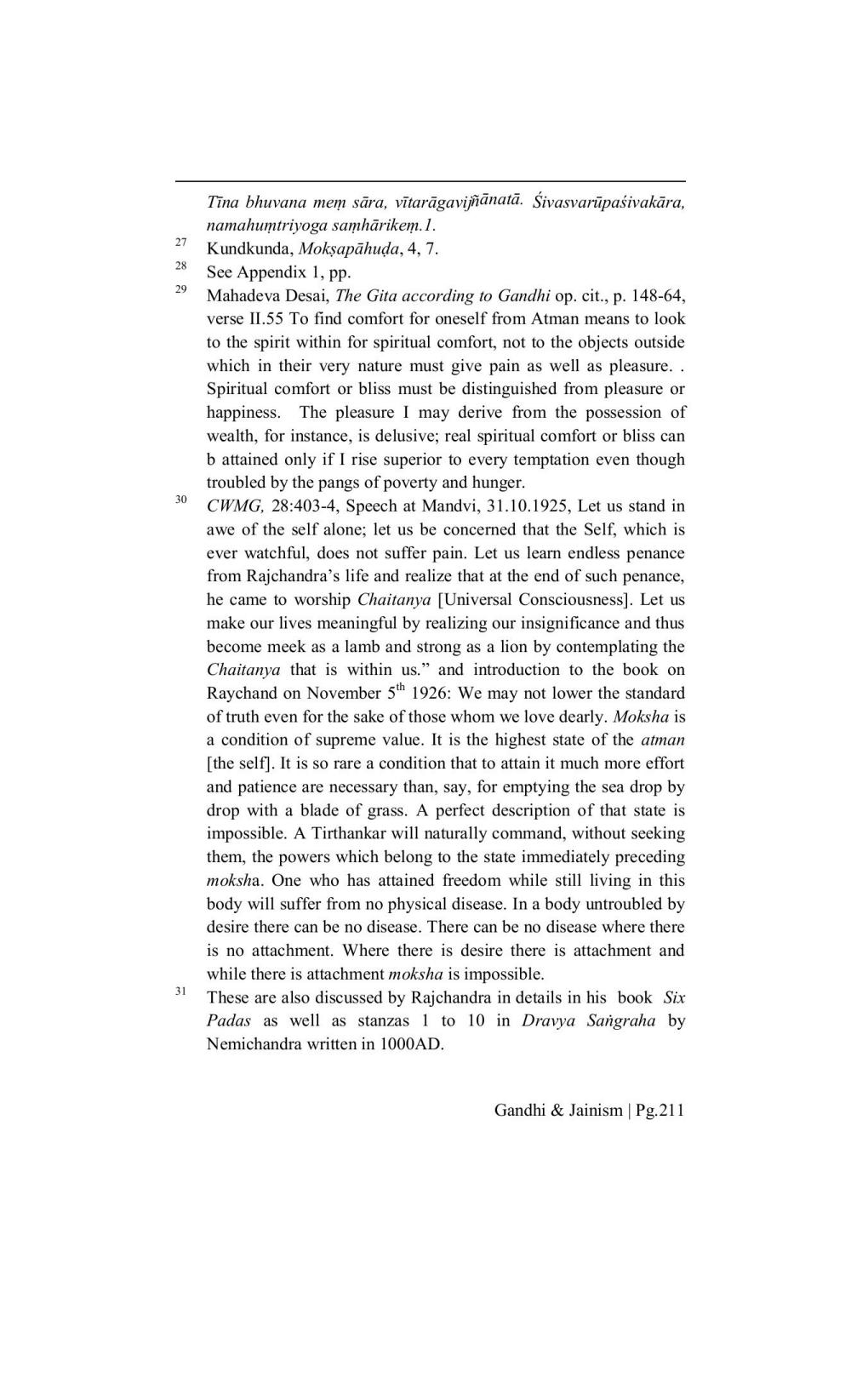________________
27
28
29
30
31
Tīna bhuvana mem sāra, vītarāgavijñānatā. Śivasvarūpaśivakāra, namahumtriyoga samhārikem.1.
Kundkunda, Mokṣapāhuda, 4, 7.
See Appendix 1, pp.
Mahadeva Desai, The Gita according to Gandhi op. cit., p. 148-64, verse II.55 To find comfort for oneself from Atman means to look to the spirit within for spiritual comfort, not to the objects outside which in their very nature must give pain as well as pleasure.. Spiritual comfort or bliss must be distinguished from pleasure or happiness. The pleasure I may derive from the possession of wealth, for instance, is delusive; real spiritual comfort or bliss can b attained only if I rise superior to every temptation even though troubled by the pangs of poverty and hunger.
CWMG, 28:403-4, Speech at Mandvi, 31.10.1925, Let us stand in awe of the self alone; let us be concerned that the Self, which is ever watchful, does not suffer pain. Let us learn endless penance from Rajchandra's life and realize that at the end of such penance, he came to worship Chaitanya [Universal Consciousness]. Let us make our lives meaningful by realizing our insignificance and thus become meek as a lamb and strong as a lion by contemplating the Chaitanya that is within us." and introduction to the book on Raychand on November 5th 1926: We may not lower the standard of truth even for the sake of those whom we love dearly. Moksha is a condition of supreme value. It is the highest state of the atman [the self]. It is so rare a condition that to attain it much more effort and patience are necessary than, say, for emptying the sea drop by drop with a blade of grass. A perfect description of that state is impossible. A Tirthankar will naturally command, without seeking them, the powers which belong to the state immediately preceding moksha. One who has attained freedom while still living in this body will suffer from no physical disease. In a body untroubled by desire there can be no disease. There can be no disease where there is no attachment. Where there is desire there is attachment and while there is attachment moksha is impossible.
These are also discussed by Rajchandra in details in his book Six Padas as well as stanzas 1 to 10 in Dravya Sangraha by Nemichandra written in 1000AD.
Gandhi & Jainism | Pg.211




